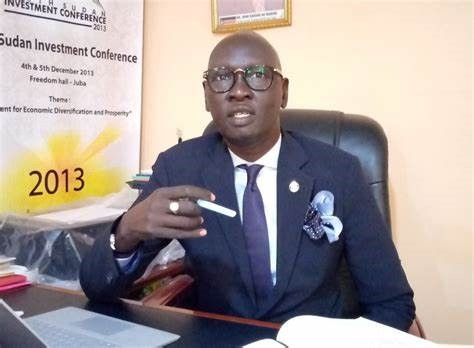By Yiep Joseph
An economic analyst has urged the Bank of South Sudan to lay out necessary awareness as the country faces a shortage of South Sudanese Pounds (SSP).
A liquidity crisis is a financial situation characterized by a shortage of liquid assets, such as cash or assets that can be quickly converted into cash. It occurs when individuals, businesses, or even entire economies struggle to meet short-term financial obligations due to insufficient cash flow.
In an interview, Abraham Maliet, a senior economic advisor to the government’s economic cluster, stated that the country faces a liquidity crisis because some people are holding cash in their houses.
He added that some people keep their money at home due to fear, claiming they can flee with it should there be a threat, while others fear paying bank fees.
“For now, there is a shortage of cash in the market, and when you are selling dollars that is where you get cash” he said. “When you deposit your money through the bank and you need cash, you may not get it.”
The economist attributes the liquidity crisis to the tendency of people to keep cash in their houses rather than depositing it in banks.
“It looks like some groups that are dealing with cash have control; they do not want to put their cash in the banks,” he said.
Dr. Maliet expressed that the country will face difficulties in the short term as individuals control cash in their houses.
“There is a cash control by individuals and electronic money transaction control by the government and associates, so we are going to have difficulty reconciling this,” he said.
The economist now called on the Bank of South Sudan to create necessary awareness to ensure that people bring money to the banks.
“The Bank of South Sudan needs to issue some communications to the public and also to assure those who are holding cash outside that their money is safe and they should bring it back to the normal banking system,” he said.
“Bring it to the bank; we are not going to charge you too much. You need to reach the people who are holding money in a way that they can bring their money back to the banking system,” he added.
He stated that the electronic payment system, which was meant to control cash flow, has faced another challenge with people keeping money in their houses.
“When the bank or Ministry of Finance pays salaries, the salaries should go to people’s bank accounts. This was done to reduce the amount of cash circulating in people’s hands too much, over which the bank was not having control,” he explained.
“That was the idea. Now, what has happened is that it looks like some groups that are dealing with cash have control; they do not want to put their cash in the bank,” he added.
In a separate statement, the Executive Director for the Community Empowerment for Progress Organization (CEPO), Edmund Yakani, called on the government to change the currency to solve the cash liquidity crisis.
According to the statement extended to the media, Yakani expressed that despite the government paying salaries for civil servants and organized forces, many have not received cash due to the liquidity crisis.
“I would like to appreciate and congratulate the efforts demonstrated by the Vice President, the Chairperson of the Economic Cluster, the Ministry of Finance, and other financial institutions in taking the decision of salary payment on a regular basis every 24th of the month,” Yakani said.
Yakani appreciated the government for their commitment and called on them to solve the cash problem to clear the salaries of government workers.
“My appeal to the leadership of the Economic Cluster and the Ministry of Finance is that there is a need to change the South Sudanese Pounds (SSP) notes to recover the money that was kept at home by either citizens or the business community,” he appealed.
He expressed that the proposal, if implemented, would recover the money that was kept at home by some citizens or the business community.
Recently, the Ministry of Finance said in a released circular that it has started processing and disbursing salaries to all spending agencies at national, state, and administrative area levels.
“The Ministry of Finance and Planning has the pleasure and honor to convey to all spending agencies, media, and the general public that the processing and payment of salaries for the month of April 2025 has been successfully started,” it said.
It stated that April salaries will cover all sectors under Chapter One, including all civil servants, army and organized forces, and foreign missions.




